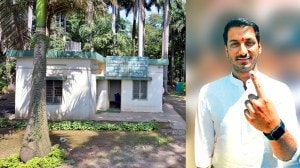Pak, Taliban swap prisoners
Pak Govt and Taliban militants are expected to swap prisoners as part of efforts for a formal peace agreement.

The Pakistan government and Taliban militants in the restive South Waziristan tribal region are expected to swap prisoners as part of efforts for a formal peace agreement.
Thirty-one militants have been airlifted from a prison in Dera Ismail Khan and detention centres in Wana, the main town of South Waziristan, and brought to Jandola, sources said.
South Waziristan, dominated by the Mehsud tribe, is the base for Pakistani Taliban commander Baitullah Mehsud. There were reports that Mehsud would oblige tribal interlocutors by freeing some security personnel and government functionaries being held by the militants.
Taliban spokesman Maulvi Omar has claimed in the past that the Tehrik-e-Taliban Pakistan has 80 to 90 security personnel and government officials in its custody.
A verbal agreement has been reached by the government and the militants but it has not been made public due to “sensitivities involved”, the influential Dawn newspaper reported on Wednesday.
“I think a verbal agreement is there already. It has to be formalised but it is not being made public for obvious reasons,” a source said.
A formal agreement could be reached in three to four days. The swapping of prisoners is expected to be done at Tiarza in South Waziristan, sources said.
Six of the militants who are set to be freed were being held in the Dera Ismail Khan prison, 19 in the army’s brigade headquarters at Zari Noor and two in detention centres in Jandola, sources said.
An official said all of them were members of the Mehsud tribe.
The military’s chief spokesman denied that an army helicopter had been used to airlift the detainees. He also said the military was not involved in any prisoner exchange.
“What is happening is that locals who may have been detained on suspicion without any strong evidence are being considered for release by the political authorities or Federally Administered Tribal Areas’ administration. But the military is not involved,” Maj Gen Athar Abbas said.
Official sources also said the military had started “thinning down” its presence at Kotkai and Spinkay Raghzay in the Mehsud-dominated part of South Waziristan. “This is a good development and there may be some more good news,” an official said.
Maj Gen Abbas said a decision on pulling out troops from South Waziristan would be made by the government and would depend on the outcome of negotiations with tribes.
He acknowledged that the military had decided to readjust its current positions and reopen various roads linking villages and townships to facilitate the return of people who had been displaced by fighting in the region.
Pakistan’s new coalition government has initiated steps for holding peace talks with all militant groups that give up violence shortly after coming to power in March.
Prime Minister Yousuf Raza Gilani has said this is part of a new policy to tackle militancy which combines political dialogue, socio-economic development and the military option.
Meanwhile, the government of the North West Frontier Province has said it has made a breakthrough in talks with Taliban militants in Swat district, who have agreed to extend a ceasefire till the next round of talks between the two sides.
This followed a meeting in Peshawar between a government team headed by Senior Minister Rahimdad Khan and Bashir Bilour and Tehrik-e-Taliban representatives from Swat headed by Muslim Khan, a close aide of radical cleric Maulana Fazlullah.
Describing their talks as fruitful, both sides said they were optimistic about the restoration of normalcy in Swat and other parts of the NWFP. The militants had declared a truce on the eve of the first round of talks held on May 9.
Afrasiab Khattak, the provincial chief of the Awami National Party that is ruling the NWFP, told journalists that the next round of talks, to be held soon, is expected to lead to the signing of an agreement.
The provincial government had accepted the militants’ demand for enforcing Islamic laws in the Malakand region and Swat within a month, Khattak said.
The withdrawal of troops from Swat had also been discussed and a joint committee was formed to monitor the situation, he said.
Ali Bakht, a Taliban ‘shoora’ or council member, said that his team had presented seven demands to the provincial government.
“Our main demands are enforcement of Shariat in Swat, withdrawal of troops from the area, release of prisoners taken into custody during the insurgency and compensation for affected families,” he said.



- 01
- 02
- 03
- 04
- 05




























